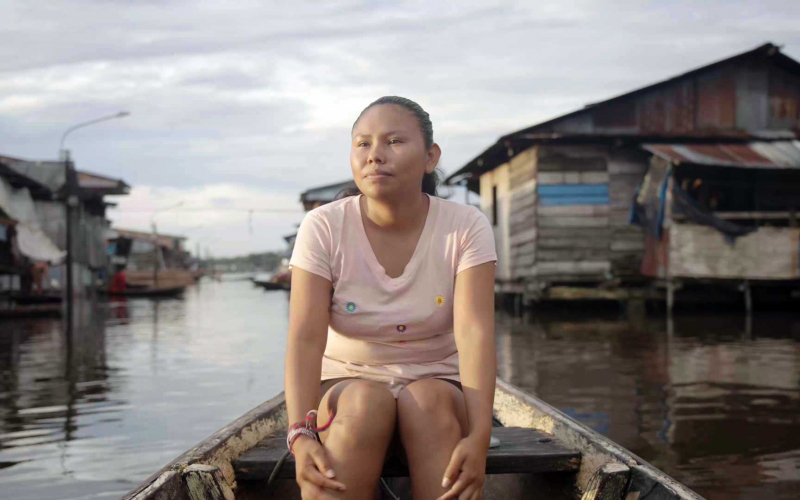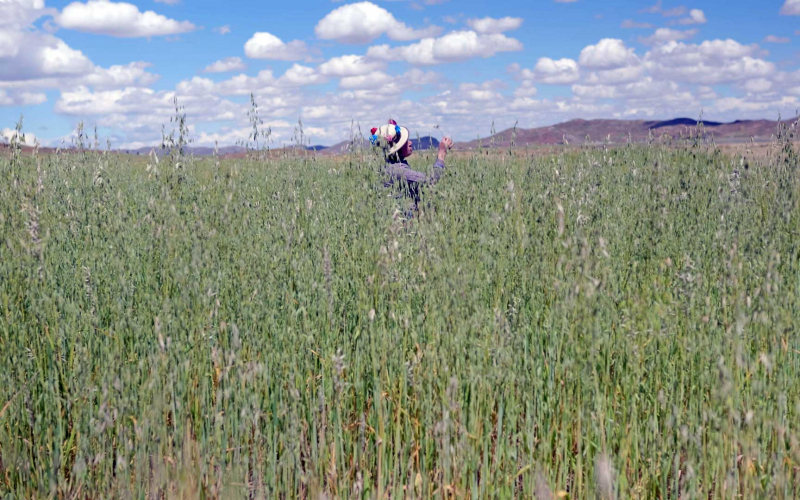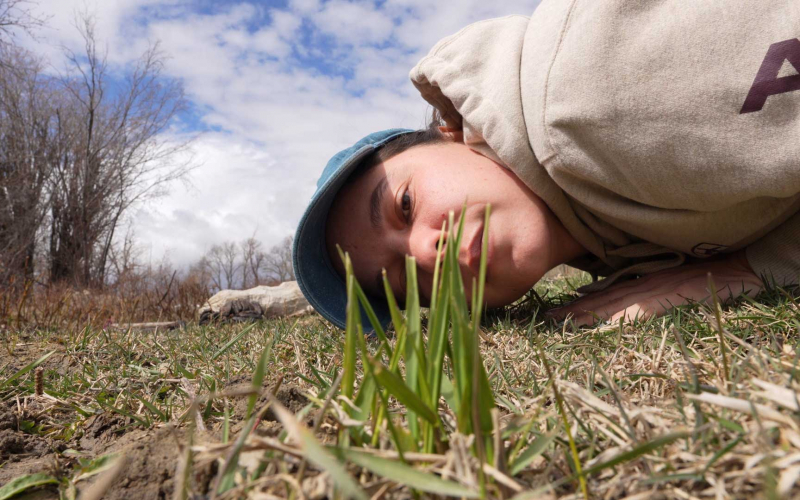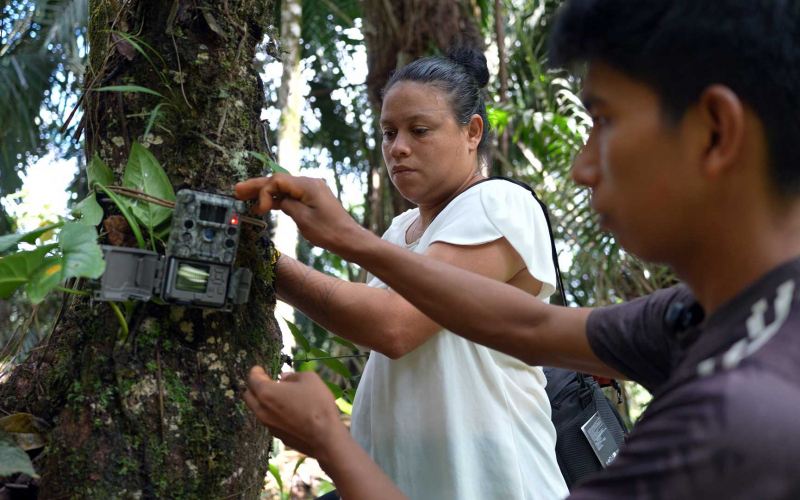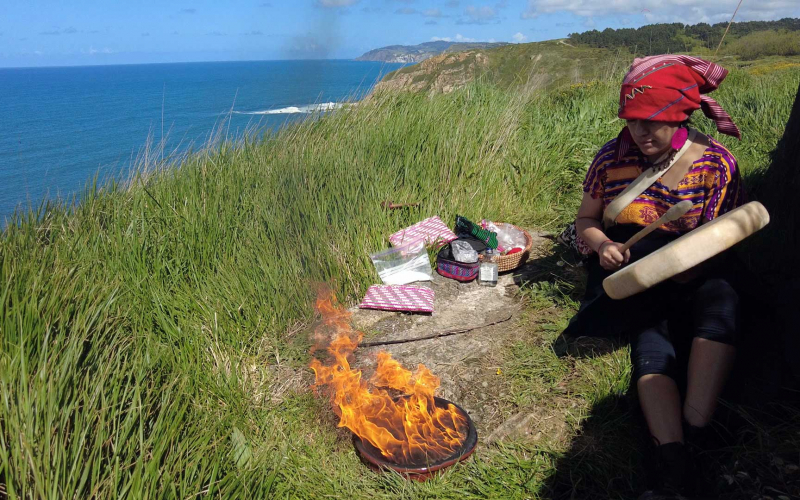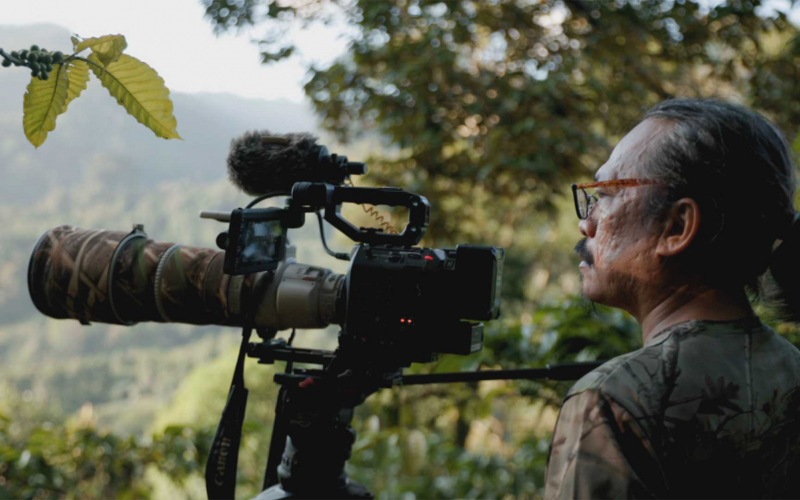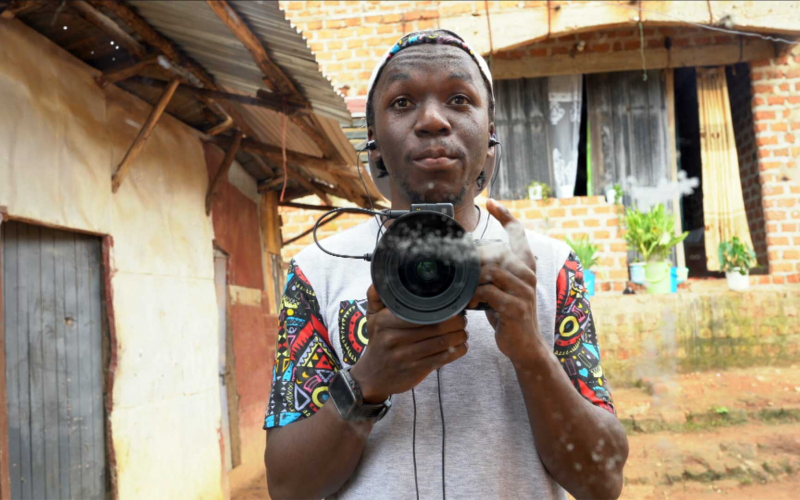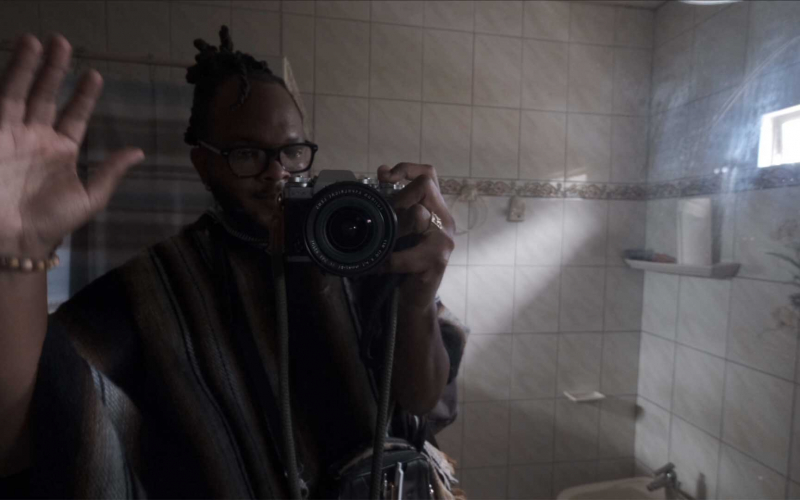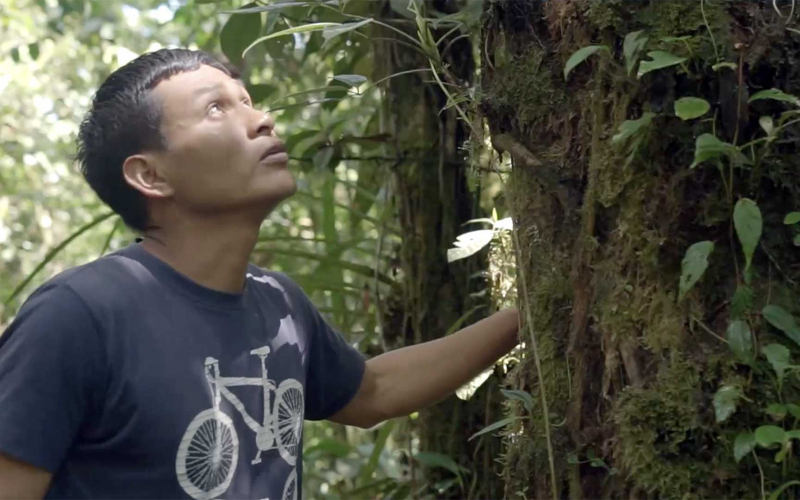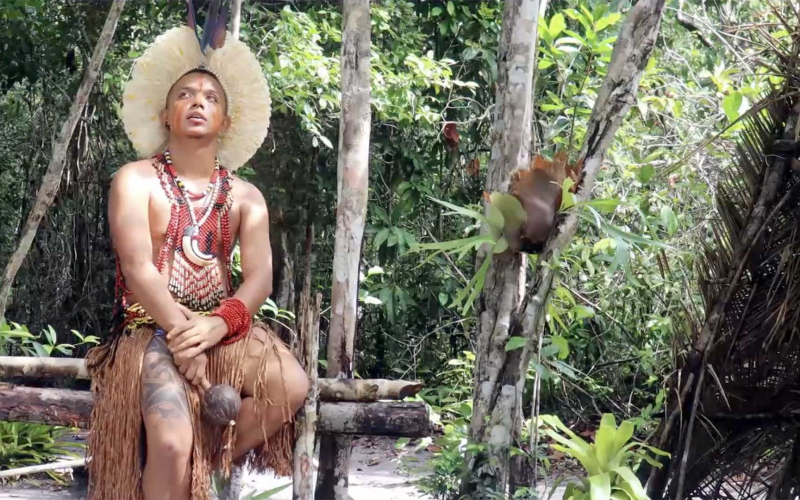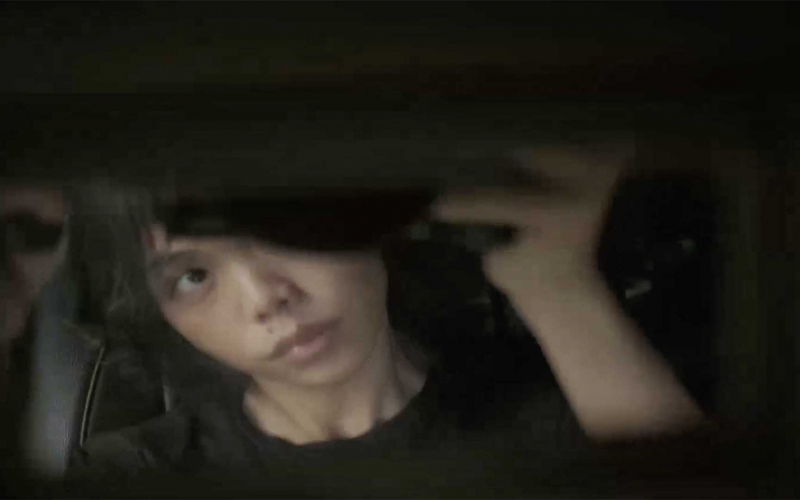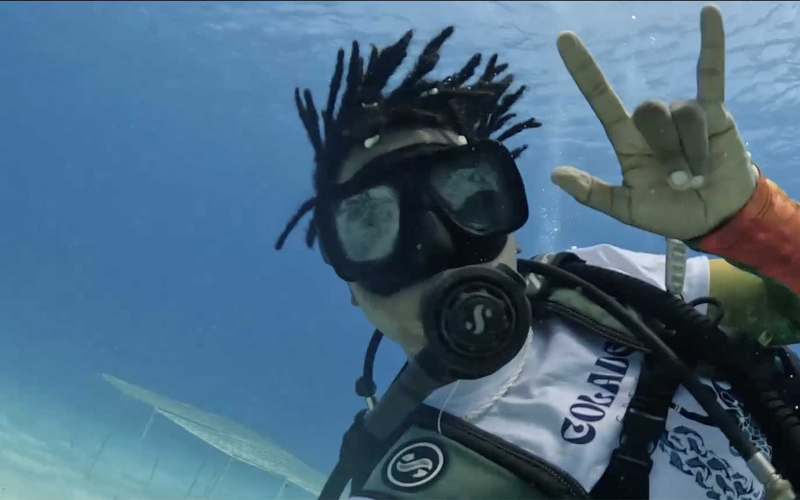Some of our talented filmmakers
(more coming soon)
Livia Silvano Pacaya
Kukama, Peru
Bio
Livia Silvano Pacaya is an emerging director, producer, and actress from her the Iquitos region, in Loreto. She began her work in film production at the age of 19 and subsequently directed her first short film. She is the co-director of MUYUNA FEST – International Floating Jungle Film Festival, which was born in the heart of the Peruvian Amazon in Iquitos—the largest city in the world inaccessible by road.
@livia_silvano
Roxana Carpio
Quechua, Peru
Bio
Roxana Carpio Almonte is an Andean-Quechua communicator and multidisciplinary artist from Puno, Peru. Her work as an audiovisual producer, singer, and educational clown is driven by an ethical commitment to visibility, social justice, and defending her territory. An ecofeminist and animal rights activist, she creates art that challenges inequality and reclaims historical memory. She is a recognized award winner and was declared “Puneña of the Bicentennial” by the Congress of Peru.
Whitney Snow
Piknaii/Blackfeet Nation, United States
Bio
Whitney is a documentary photographer who is dedicated to capturing stories that depict the emotional connection between people and their environment. She focuses on narratives about indigenous communities and their struggle to preserve their way of life, including efforts related to environmental and cultural conservation, as well as language revitalization. Her main focus is the Blackfeet Nation, where she works alongside local indigenous documentary filmmakers, environmental groups, community members, and state/national organizations to document the environmental and cultural preservation initiatives of the Blackfeet people.
@whitneytsnow
Samai Gualinga
Kichwa, Ecuador
Bio
Samai Gualinga is a Kichwa woman from the Indigenous Kichwa People of Sarayaku, the People of the Midday, where resistance and the Kawsak Sacha (Living Forest) will remain forever. Born in the heart of the Amazon rainforest, she has found in communication a form of struggle—a tool to narrate the living history of her people. She is a communicator, audiovisual producer, and part of the Waktachik team, which strengthens ancestral memory through word, art, and radio. As vice president of Sarayaku, she drives processes of education and self-determination. Her voice has been raised in international forums, bringing the jungle to the world and defending life.
@samai_gualinga_
Ana Lucia Ixchiu
Maya K´iche, Guatemala
Bio
Ana Lucia Ixchiu is a Maya K’iche’ woman from Totonicapán, Guatemala, she is a multifaceted artist, cultural manager, singer, community journalist, architect, community art curator, indigenous storyteller, and film director. A pioneer in creating works addressing art and the climate crisis, she has been an activist since the age of 11. Her path intensified following the October 4, 2012, massacre at the Alaska Summit—where the Guatemalan army attacked Indigenous people from Totonicapán—transforming her into a powerful activist and journalist for Indigenous rights. She was a leader of the student movement from 2013 to 2017. Currently, she lives in exile and is criminalized by the Guatemalan state as a target of the country’s criminal dictatorship and kleptocratic powers.
@luciaixchiugt
Nanang Sujana
Rejang, Indonesia
Bio
Rejang Indigenous Filmmaker. Nanang Sujana is an award-winning documentary filmmaker. He has been filming for BBC Natural World, National Geographic, Netflix, NHNZ, Aljazeera, Stern TV. Recently worked the Ocean Preservation Society feature documentary, ‘‘The Last Place on Earth’ as DoP, Producer and Editor.
@tunkalai
Nasawali Leslie
Mumasaba, Uganda
Bio
Nasawali is a non-profit communications specialist, filmmaker and documentary visual storyteller with over 8 years of experience. He has a strong passion for telling human-interest stories and capturing authentic moments that tell a compelling story. He has used his skillset and passion to assist various non-profit organisations both local and international to personify their work while enabling their audiences to gain a deeper understanding of the impactful community initiatives they undertake through the art of storytelling. Nasawali’s work has taken him to remote corners of the world, where he has had the privilege of documenting the lives of people from all walks of life.
@nasawali
Vonley W. Smith
Karlingo, Garifuna, Trinidad and Tobago
Bio
Vonley Smith is a creative filmmaker skilled in the areas of cinematography, editing and directing. His films have been screened at regional and international film festivals, including Trinidad and Tobago Film Festival (2021), Hairouna Film Festival (2021) and Caribbean Tales International Film Festival (2021). Vonley is currently working towards his first feature film.
@soulvws
Carlos Enqueri Omene
Waorani, Ecuador
Bio
Carlos is a documentary film maker who lives in the community of Waorani Titepare, in the Amazonian Region of Ecuador. His role involves the showcasing and storytelling of Waorani lives through his audio-visual productions. A few years ago he started visiting several territories where he noticed a big impact from the oil and mining industries. At that moment, he decided to start telling his people about these environmental disasters using short videos, with the intention of reminding them that the future depends entirely on the protection of the forest and raising awareness about how serious the impact of pollution is. Carlos is an environmentalist and believes that this is a position any indigenous person should hold. Since he had no other choice but to learn about the struggles of the Waorani resistance, he started to work with Alianza Ceibo – an organization which is supported by local foundations and aims at raising awareness about the environmental and cultural impacts caused by the oil industry.
@carlosenqueri87
Eduardo Ferreira
Pataxó, Brazil
Bio
Eduardo Pataxó (Eduardo Ferreira Pedro), whose indigenous name is Manuhã Pataxó, is a communicator, photographer, activist, and indigenous youth leader from the Pataxó people of the Tibá Village, in the Comexatibá Indigenous Territory (Prado, Bahia). He participated in the Micro-Grant Program for Indigenous Reporters developed by Agência Pública in partnership with the Norwegian Support Program for Indigenous Peoples. He comes from a family of great matriarchs and leaders of the Pataxó people: he is the great-grandson of Zabelê, grandson of Jolina (Jurema), and son of Rosa and Mãdin Pataxó, a leader in the Rio do Cahy Village. Following in the footsteps of his relatives, Eduardo is an activist for his people’s rights in political and institutional spheres. For over 10 years, he has been lecturing on youth, culture, love, and the protection of Mother Nature, always empowering Pataxó youth to honor their roots.
@eduardopataxo_
Kynan Tegar
Iban, from Sungai Utik, Indonesia
Bio
Kynan Tegar is a photographer and filmmaker from the Iban people of the island of Borneo, Indonesia currently studying Social Anthropology at the University of Indonesia. Living in and around the traditional longhouse of Sungai Utik, Kynan learns directly from the elders, their wisdom and values, their stories of resistance in the face of encroaching deforestation, and the threats to their way of life. Picking up thier first camera as an inquisitive twelve year old, they were making their first short films soon after. Working with this new medium they craft thoughtful and emotive imagery, highlighting the quiet daily lives of the people and the community within their tranquil village. Documenting the community’s traditional knowledge, and highlighting the importance of balance with nature.
@kynantegar
Ana María Jessie Serna
Raizal, Colombia
Bio
Ana Maria Jessie Serna is a Caribbean filmmaker, a being of salt rooted to her ancestral territory. Her community, emancipated over two hundred years ago, finds its freedom intrinsically tied to the sea. She witnesses the ongoing attempts to erase her Raizal culture through industry, tourism, and colonial deceit, yet she sees its resistance—like the manglares, rooted steadfast against the hurricanes. Ana safeguards her community’s struggle through her lens, using filmmaking as an instrument for memory. To make cinema from the territory is to converse with fishers, dig into the earth, and swim in oceanic blues. Her work is a defiant declaration to the world: the Raizal people rise daily. Despite those who would take their shores or poison their lands, she answers the waves that speak to her, continuing to carve a path with images that will do justice to their history.
@manitajessie

